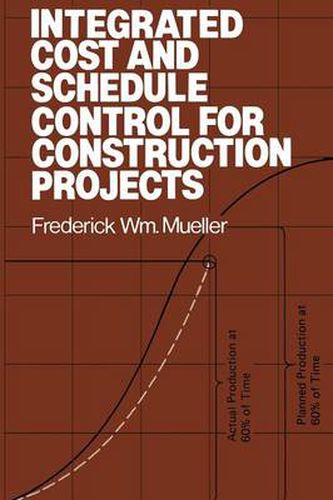Readings Newsletter
Become a Readings Member to make your shopping experience even easier.
Sign in or sign up for free!
You’re not far away from qualifying for FREE standard shipping within Australia
You’ve qualified for FREE standard shipping within Australia
The cart is loading…






This title is printed to order. This book may have been self-published. If so, we cannot guarantee the quality of the content. In the main most books will have gone through the editing process however some may not. We therefore suggest that you be aware of this before ordering this book. If in doubt check either the author or publisher’s details as we are unable to accept any returns unless they are faulty. Please contact us if you have any questions.
Management and administrative processes within the construction industry have been undergoing major changes in the last several decades. These changes have involved significant adjustments in management science and manage ment techniques, brought about by the need for contemporary valid informa tion with which to manage the construction process. In short, management in the construction industry is changing significantly; change will continue at an accelerated pace at least through the next decade. The responses required of construction industry management are now resulting in a movement away from an entrepreneurial management style to professional management tech niques and procedures. THE COMPELLING ECONOMIC ISSUES The issues forcing these changes are economic. The rising costs of construction and of money are forcing the buyers of construction services to be more demanding. Their demands are for more construction economies, more pro duction, and more productivity than at any time in the past. Nowhere has this been more evident than in the Business Roundtable on construction and in the response of the construction industry to it.* To be successfully responsive, management in the construction industry will be required to use the best project management methods available for cost control, schedule control, and for financial and accounting controls. But responsive professional management can survive and will flourish within this more demanding eco nomic environment.
$9.00 standard shipping within Australia
FREE standard shipping within Australia for orders over $100.00
Express & International shipping calculated at checkout
This title is printed to order. This book may have been self-published. If so, we cannot guarantee the quality of the content. In the main most books will have gone through the editing process however some may not. We therefore suggest that you be aware of this before ordering this book. If in doubt check either the author or publisher’s details as we are unable to accept any returns unless they are faulty. Please contact us if you have any questions.
Management and administrative processes within the construction industry have been undergoing major changes in the last several decades. These changes have involved significant adjustments in management science and manage ment techniques, brought about by the need for contemporary valid informa tion with which to manage the construction process. In short, management in the construction industry is changing significantly; change will continue at an accelerated pace at least through the next decade. The responses required of construction industry management are now resulting in a movement away from an entrepreneurial management style to professional management tech niques and procedures. THE COMPELLING ECONOMIC ISSUES The issues forcing these changes are economic. The rising costs of construction and of money are forcing the buyers of construction services to be more demanding. Their demands are for more construction economies, more pro duction, and more productivity than at any time in the past. Nowhere has this been more evident than in the Business Roundtable on construction and in the response of the construction industry to it.* To be successfully responsive, management in the construction industry will be required to use the best project management methods available for cost control, schedule control, and for financial and accounting controls. But responsive professional management can survive and will flourish within this more demanding eco nomic environment.